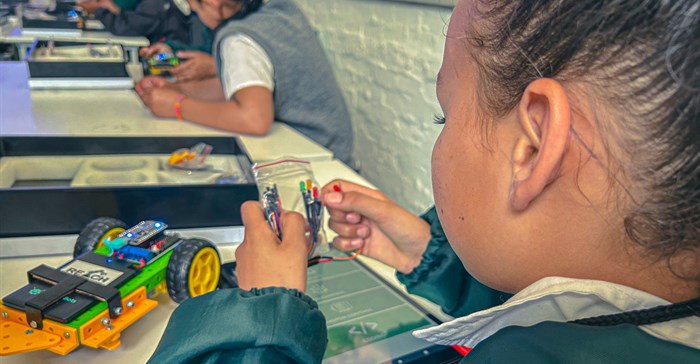Google celebrates girl children with Cape Town Science Centre partnership

This initiative aims to bridge the gender gap in the fields of science, technology, engineering, and mathematics (STEM), providing a supportive and empowering environment to inspire the participants. The girls are encouraged to explore and foster their interest in potential STEM careers, particularly those related to AI and robotics. The training offers insights into the real-world applications of AI and robotics, and includes practical, interactive workshops that allow the participants to experiment in the captivating realm of AI and robotics.
“It is essential to make a conscious effort to give South African girls the opportunities and support they need to develop an interest in and pursue careers in STEM. We are particularly excited with the partnership between The Cape Town Science Centre and Google, which is a promising step in bridging the gender gap in STEM”, says Theresa Ely-Felino, coding and robotics manager, at Cape Town Science Centre, says.
Career guidance
The training programme covered a range of topics, including the basics of AI, introduction to coding, and how to build and program simple robots. STEM projects from other girls were also showcased to inspire the participants, and there were sessions on STEM career guidance.
The outcome expected from the STEM training is an increased awareness and interest among girls about AI and robotics, enhanced confidence and motivation to pursue STEM-related education and careers, building a supportive community of girls interested in STEM, and encouraging hands-on learning and creative problem-solving.
In Southern Africa, even though the enrolment of girls in secondary education is higher than for boys, many of them drop out before completing their secondary education. Moreover, most of those who complete secondary education lack the required proficiencies in numeracy, science and the digital skills necessary to enrol in STEM related programs at the tertiary education level.
According to UNICEF, with only 28.5% of young women in South Africa graduating tertiary institutions in Science, Technology, Engineering and Mathematics (STEM)-related careers, the widening gender gap in schools must be addressed.
Inclusion can drive economic growth
“Inclusion in technology is not only a matter of equity but also a significant economic growth driver. Partnering with the Cape Town Science Centre (CTSC) is in line with Google’s commitment to support digital skills and create sustainable structures for tech education and inclusivity in South Africa”, says Siya Madikane, Communications and public affairs manager, Google, South Africa.
This collaboration between Google and The Cape Town Science Centre to train girls in STEM is not about creating a quick fix to the complex issue of tech inclusivity, but it's about consistent, progressive efforts to ensure that the technology sector in South Africa is more inclusive, and diverse.
Google is committed to diving inclusion in the tech industry, ultimately supporting gender parity in the digital economy in South Africa.





























